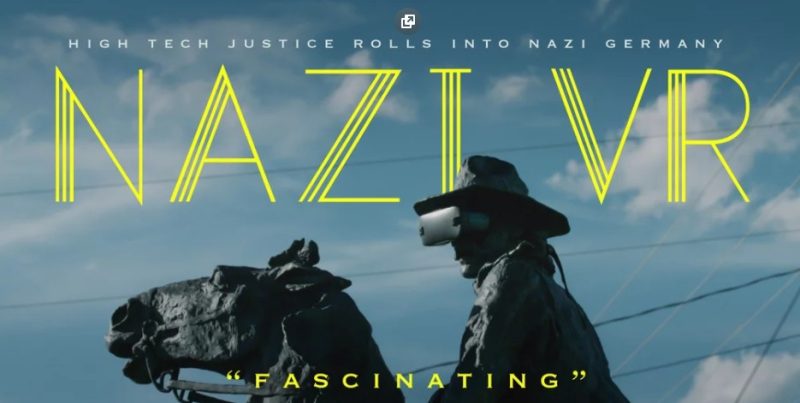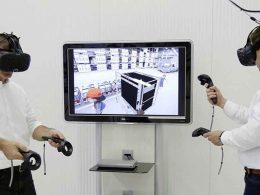At the trial of ex-SS officer Reinhold Hanning, situations in the Auschwitz concentration camp were digitally reconstructed and thus VR used for evidence. The trial is considered groundbreaking.
Even more than 70 years after the end of the Second World War, not all the crimes that took place during that time have been dealt with. Late, but nevertheless, a former member of the "Schutzstaffel" (SS) was tried in Germany last year. The paramilitary sub-organisation of the NSDAP became known for its cruelty not only on the battlefield. The verdict of the Detmold Regional Court against Reinhold Hanning, who was already old at the time of the trial and who had once been an SS Unterscharführer and guard in the notorious Auschwitz-Birkenau concentration camp, was finally five years' imprisonment for aiding and abetting murder in at least 170,000 cases. However, the judge's decision never became final. Hanning's lawyer appealed. Hanning died in May 2017 at the age of 95, which resulted in the termination of the proceedings.
Nazi VR
And yet the trial is considered groundbreaking: for the first time, it was a guilty verdict that not only referred to murder by shooting or in gas chambers, but also to deaths that were due to the catastrophic supply conditions and the hard forced labour. New ground was also broken in another aspect: virtual reality was used to provide evidence. In the documentary "Nazi VR" (17 minutes), which can be viewed free of charge online, one follows the course of the trial and the work of the Bavarian State Criminal Police Office. There, experts created video recordings of the camp and also consulted old plans of the facility in order to reconstruct it exactly in virtual reality.
Claim refuted Trial participants were finally able to get an impression of the situation at the time with the help of VR glasses. Hanning had always declared that from his guard post he had had no insight into the conditions under which the prisoners had to eke out an existence in Auschwitz. However, this claim could be credibly refuted in this way. This may have laid the foundation for further evidence of this kind. Jens Rommel, the public prosecutor in charge of the case, sees potential for supporting the investigation of other war crimes in this way.
Source: derstandard / Vimeo









